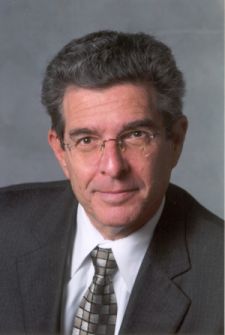|
| Biography |
| |
 As President of the NYAS since November 2002, Ellis Rubinstein is rejuvenating the 189-year-old institution through novel initiatives. The Science Alliance for Graduate Students and Post Docs provides career-mentoring to over 5,000 investigators. The Frontiers of Science Program is a “science salon” for researchers in the hottest fields of science. Science Without Borders disseminates information to 25,000+ members in 140 countries and to nearly 100,000 non-member Web visitors each month. Mr. Rubinstein spent 13 years at the American Association for the Advancement of Science, serving as Editor of Science magazine 1993-2002. He was Editor of The Scientist, Senior Editor at Newsweek, and Managing Editor of Science 86 and IEEE Spectrum. He was thrice honored by National Magazine Awards—the Pulitzer Prizes of the periodical industry. He conducted the first one-on-one interview with Chinese President Jiang Zemin granted to a Western magazine and Bill Clinton's first interview with a science magazine. Ellis pioneered in global partnerships with the prestigious Chinese Ministry of Science and Technology; Japan's Society for the Promotion of Science; the UK's Ministry of Trade, the German Research Foundation, France’s INSERM, and the EU Commission. A member of World Economic Forum for 6 years, he moderated discussions at the nexus of science and society. A 1967 graduate of the University of California, Berkeley, Rubinstein is a Fellow of the AAAS and a member of the IEEE.
As President of the NYAS since November 2002, Ellis Rubinstein is rejuvenating the 189-year-old institution through novel initiatives. The Science Alliance for Graduate Students and Post Docs provides career-mentoring to over 5,000 investigators. The Frontiers of Science Program is a “science salon” for researchers in the hottest fields of science. Science Without Borders disseminates information to 25,000+ members in 140 countries and to nearly 100,000 non-member Web visitors each month. Mr. Rubinstein spent 13 years at the American Association for the Advancement of Science, serving as Editor of Science magazine 1993-2002. He was Editor of The Scientist, Senior Editor at Newsweek, and Managing Editor of Science 86 and IEEE Spectrum. He was thrice honored by National Magazine Awards—the Pulitzer Prizes of the periodical industry. He conducted the first one-on-one interview with Chinese President Jiang Zemin granted to a Western magazine and Bill Clinton's first interview with a science magazine. Ellis pioneered in global partnerships with the prestigious Chinese Ministry of Science and Technology; Japan's Society for the Promotion of Science; the UK's Ministry of Trade, the German Research Foundation, France’s INSERM, and the EU Commission. A member of World Economic Forum for 6 years, he moderated discussions at the nexus of science and society. A 1967 graduate of the University of California, Berkeley, Rubinstein is a Fellow of the AAAS and a member of the IEEE.
|
| |
|
|
| |
| Abstract |
| |
|
Bridging the Gaps from Bench to Bedside and from North to South – Two Seminal Scientific Challenges of Our Time |
|
|
|
As the advances of science become ever more spectacular, the lag-times before they improve our lives become ever more glaring. In the clinics of the developed world, doctors and patients wonder when they will have therapies that suit the needs of the individual … or, at the very least, the needs of homogenous classes of individuals. In the clinic-less villages of economically deprived nations, people wonder when – if ever – the wonders of modern medicine will become available … assuming they are even aware of the cornucopia of treatments that can address the treatable diseases of our time. As Charles Dickens wrote: “It was the best of times; it was the worst of times… .” This presentation will point to signs suggesting that the scientific community is struggling to address society’s problems in new ways. It will then propose initiatives that could help bridge the gaps between bench and bedside and between North and South. |
|
| |
|